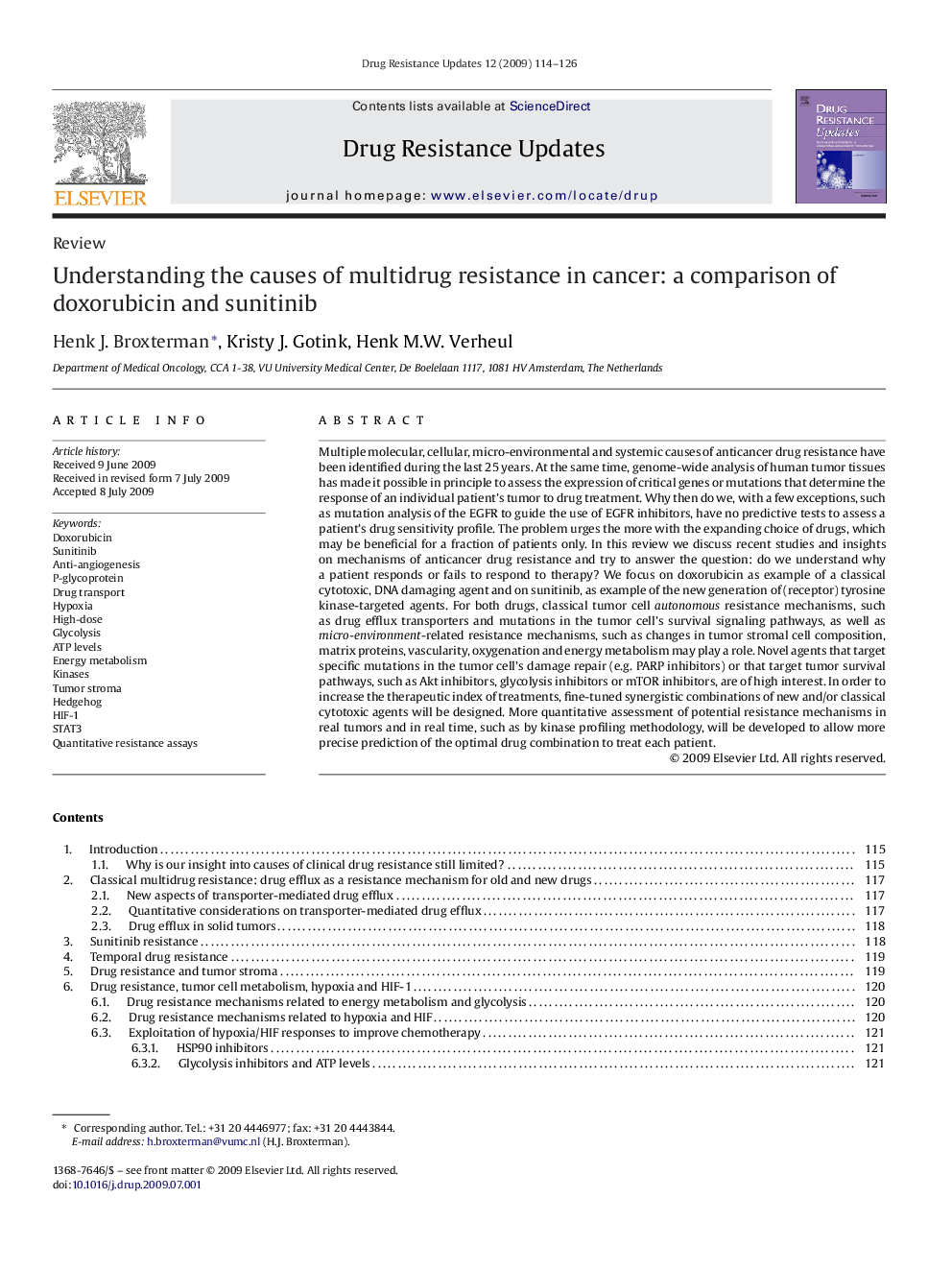| کد مقاله | کد نشریه | سال انتشار | مقاله انگلیسی | نسخه تمام متن |
|---|---|---|---|---|
| 2120495 | 1546854 | 2009 | 13 صفحه PDF | دانلود رایگان |

Multiple molecular, cellular, micro-environmental and systemic causes of anticancer drug resistance have been identified during the last 25 years. At the same time, genome-wide analysis of human tumor tissues has made it possible in principle to assess the expression of critical genes or mutations that determine the response of an individual patient's tumor to drug treatment. Why then do we, with a few exceptions, such as mutation analysis of the EGFR to guide the use of EGFR inhibitors, have no predictive tests to assess a patient's drug sensitivity profile. The problem urges the more with the expanding choice of drugs, which may be beneficial for a fraction of patients only. In this review we discuss recent studies and insights on mechanisms of anticancer drug resistance and try to answer the question: do we understand why a patient responds or fails to respond to therapy? We focus on doxorubicin as example of a classical cytotoxic, DNA damaging agent and on sunitinib, as example of the new generation of (receptor) tyrosine kinase-targeted agents. For both drugs, classical tumor cell autonomous resistance mechanisms, such as drug efflux transporters and mutations in the tumor cell's survival signaling pathways, as well as micro-environment-related resistance mechanisms, such as changes in tumor stromal cell composition, matrix proteins, vascularity, oxygenation and energy metabolism may play a role. Novel agents that target specific mutations in the tumor cell's damage repair (e.g. PARP inhibitors) or that target tumor survival pathways, such as Akt inhibitors, glycolysis inhibitors or mTOR inhibitors, are of high interest. In order to increase the therapeutic index of treatments, fine-tuned synergistic combinations of new and/or classical cytotoxic agents will be designed. More quantitative assessment of potential resistance mechanisms in real tumors and in real time, such as by kinase profiling methodology, will be developed to allow more precise prediction of the optimal drug combination to treat each patient.
Journal: Drug Resistance Updates - Volume 12, Issues 4–5, August–October 2009, Pages 114–126